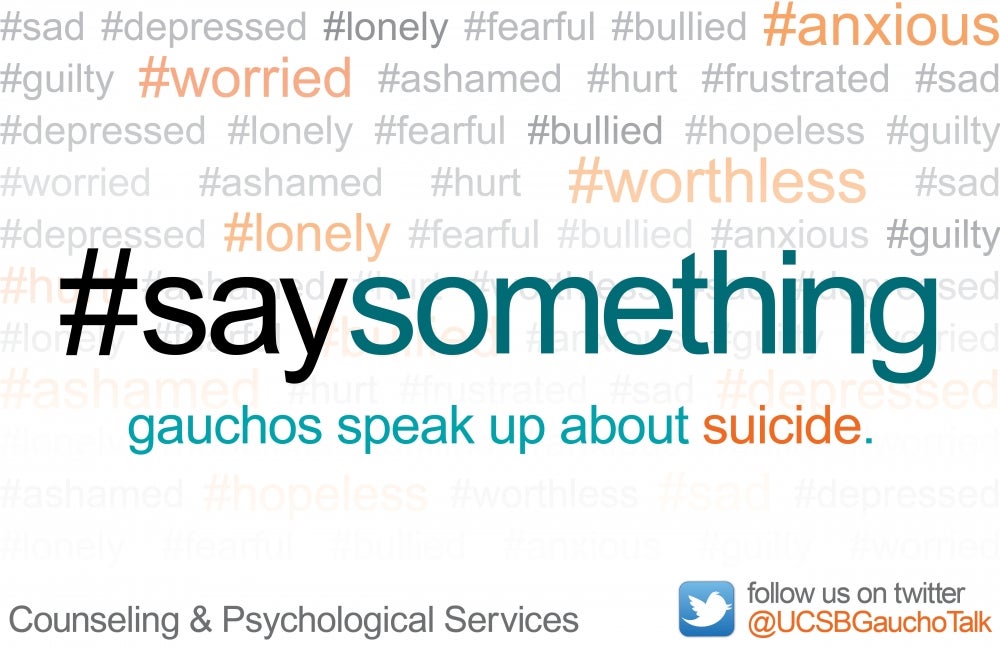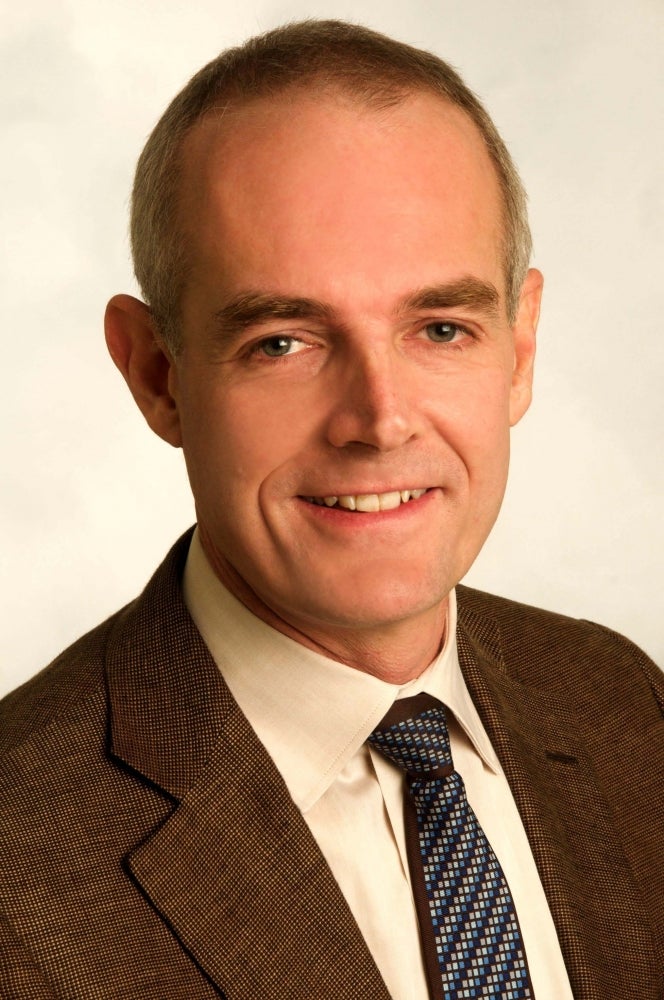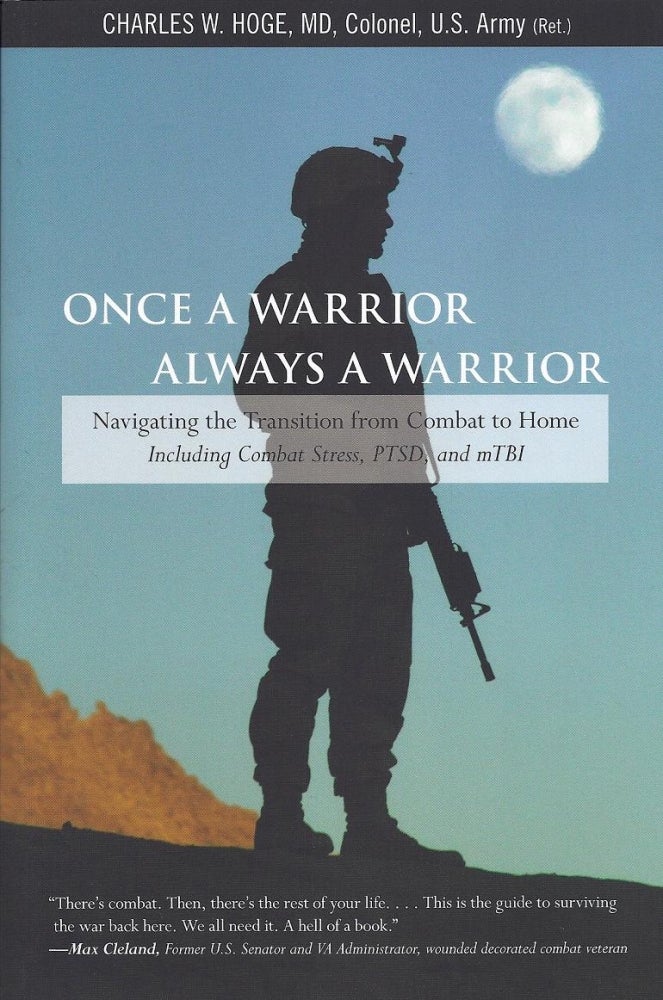
'Say Something'


Say something.
It’s a small message with a big goal: saving lives. UC Santa Barbara’s Counseling and Psychological Services (CAPS) center has launched a new suicide prevention outreach effort designed to encourage everyone in the campus community — students, staff and faculty alike — to do just that. Say something.
The campaign with a strong digital social media component — its official name is #saysomething — is the most public effort yet to come of CAPS’ ongoing grant, the Student Mental Health Initiative (SMHI) aimed at suicide prevention. It includes a mobile device app offering educational information and relevant resources and a yearlong, free speaker series meant to further raise awareness.
That series on November 21, at 6 p.m., will feature Charles Hoge, M.D., a retired U.S. Army colonel, former attending psychiatrist at Walter Reed Medical Center and nationally known PTSD expert. The author of “Once a Warrior, Always a Warrior,” Hoge will give a free talk at Mosher Alumni House — the public is welcome — about navigating the transition from combat to home. Student veterans are among the focus populations of #saysomething.
With suicide now the second most common cause of death on college campuses, awareness is crucial.
“We’re looking at multipronged ways of reaching students to demystify mental health services, to give them access and exposure,” said Janet Osimo, Psy.D., SMHI psychologist. “Nationwide, most people who die by suicide have not had any contact with a mental health professional.”
Aimed at prevention and early intervention, SMHI is a statewide effort of all UC, California State University and California Community College campuses. Administered by California Mental Health Services Authority (CalMHSA), it is funded by the voter-approved Mental Health Services Act (Prop 63) that passed in 2004. At UCSB, the grant began in earnest in 2011; it is funded through the end of the current academic year.
With the grant, CAPS has added three additional counselors to its existing mental health peer program and instituted the Interactive Screening Program — a new protocol for suicide-risk screening that invites students to complete an anonymous survey via e-mail. The results go directly to Osimo — sans identifying information — who responds personally to participants. The protocol is meant to be a “bridge to get them into counseling,” she said.
Additional SMHI efforts at UCSB include the dissemination of a digital folder to faculty and staff. This fixed, irremovable red icon to be installed on desktops contains distressed student protocols and relevant resources. Community outreach has connected the campus with Santa Barbara City College and the Glendon Association, a local mental health organization, and resulted in a citywide marketing campaign.
But perhaps the key component of #saysomething is bystander training, an endeavor that offers all students essential tools and tips in “what to look for, what to do if you know someone in distress and how to have the conversation,” explained Gladys Koscak, a mental health specialist funded through UCSB’s SMHI grant. Throughout fall quarter, as part of their orientation, every incoming student — freshmen, transfers and international — is receiving bystander training through a required peer-to-peer workshop.
“We have distressed student protocol training for staff and faculty, but as far is students go this is the first official effort — and it’s the first thing directed specifically at suicide prevention,” Koscak said. “The topic itself can be very heavy, so we try to be mindful of that but still give them opportunities to practice various scenarios. We want them to feel prepared and empowered to do something about it.”
That includes distressed students themselves, who are at the heart of the campaign and its most important target audience. The hope, Osimo said, is that they’ll speak up for themselves, too.
“Our message is, ‘You don’t have to fix it, you just need to get them — or get yourself — to someone who can help,’” she said. “Bottom line: Say something. Get out there and say something.”
CalMHSA is an organization of county governments working to improve mental health outcomes for individuals, families and communities. CalMHSA operates services and education programs on a statewide, regional and local basis. For more information, visit www.calmhsa.org.



